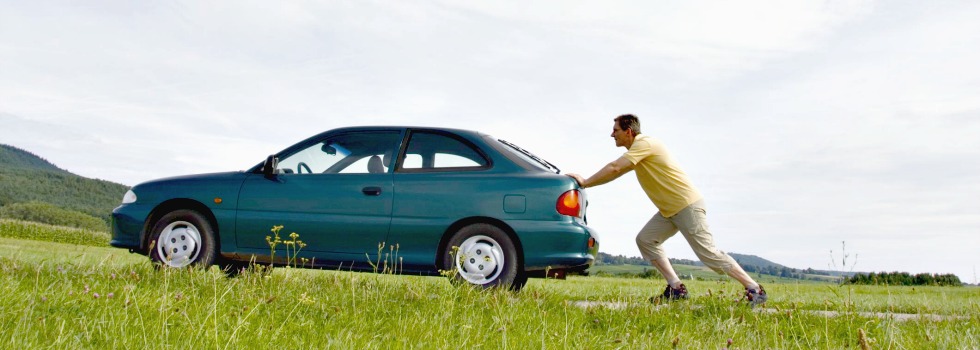Many people, particularly new arrivals, wonder whether it is is better to be carless or not be carless in the Netherlands, particularly in the city. Here is one car-free Mama’s perspective on the pros and cons of having a dedicated automobile.
The Netherlands is bike country. Whether it’s the flat landscape or its top-notch public transport system (compared to the UK anyway), you have a country where cars are often no longer an absolute necessity. Granted, in small rural villages this might not be the case, but my family and I live in a small town outside Amsterdam and haven’t had a car for nearly four years. All of our regular destinations (school, preschool, sports clubs, supermarket, town centre, train station, etc) are within easy walking distance, even for my four-year-old. Part of that is from choosing our location well, but we also benefit from living in a country where alternatives to the car are prioritised.
Pros of Car Ownership
- Convenience: you can go where you want when you want.
- Space: you have space for bags, art and science projects, sports equipment, friends, pets, birthday cakes, etc., etc..
- Comfort: it’s dry in the car and it rains a lot in the Netherlands.
Cons of Car Ownership
- Expense: whether you are bringing your existing car into the Netherlands from elsewhere or buying here, it can be expensive. Even beyond just purchasing a car, there are other factors …
- Fuel: as of September 2018, the Netherlands had the highest price of petrol in Europe!
- Parking: while parking your bike is not always a piece of cake, parking a car, particularly in a city, can be considerably more tricky … and expensive. In Amsterdam you will need to get a residence parking permit. You pay for them by the half year and the price for those six months ranges from €32.50 – €267.50, depending on neighbourhood. Amsterdam public street parking is the most expensive in the country, as are car parks; indeed, Amsterdam is one of the most expensive cities in Europe for on street parking. You can’t always manage to park close to where you want to go either.
- Insurance: monthly insurance bills vary widely depending on the make of the car, coverage, location, and your driving record. A modest car in Zuid, with moderate coverage and good, but not spotless, driving history will cost a minimum of € 25 per month.
- Traffic: the Netherlands is one of the most densely populated countries in the world, and even with great public transport … there’s a lot of traffic.
- Time: the car is something else you need to keep clean.
Okay, how about NOT owning a car? Surprisingly, the pros and cons of not having a car do not entirely match up.
Pros of No Car Ownership
- Saves Money: (see Cons of Owning a Car above) and Dutch public transport is an excellent alternative – reasonably economical and convenient with an OV Chipkaart.
- Health: no car means walking, and biking more which has both physical (you stay fitter) and mental (no traffic jam stress) benefits.
- Easy Alternatives to Non-Ownership: not owning a car doesn’t mean you are cut off from them entirely! There are lots of rental and car sharing options.
- Being Green: there is no question that not owning a car is better for the environment.
Cons of No Car Ownership
- Time: it often takes longer to get where you’re going as public transport doesn’t go everywhere and its schedule and yours may not be copacetic.
- Convenience: you need to carry your shopping home.
- Comfort: you generally get wetter when it rains.
There are workarounds for families who don’t have a car. A weekly shop may need to be spread out over several visits; alternatively you can order your groceries online. While a few places, particularly the coast, can be difficult to get to, for most other places the journey there simply becomes part of the day out. And once the children are big enough to sit in a booster seat (over four years old and 15kg) you can get portable seats that are much easier when renting cars. We frequently fly to the UK, pick up a car at the airport, then drive round seeing family, and finish at a different airport where we leave the car and fly home again.
Maybe our car-free status will change when the children get older and have different after school events and the logistics become more complicated. Certainly, everyone’s needs and situations are different, but I would encourage everyone to seriously consider whether owning a car is truly serving your and your family’s needs.
Useful Links for Decision Making
Importing and Exporting Cars to the Netherlands
Getting a Dutch Driver License (for Amsterdam, but the process is the same whichever municipality you live in)
Clarissa Gosling
Clarissa Gosling moved from the UK to The Netherlands in 2014 with her husband and two children, who are all enjoying Dutch life. She is the author of Moving Abroad with Children and Raising Bilingual Children: When School Speaks a Different Language.






